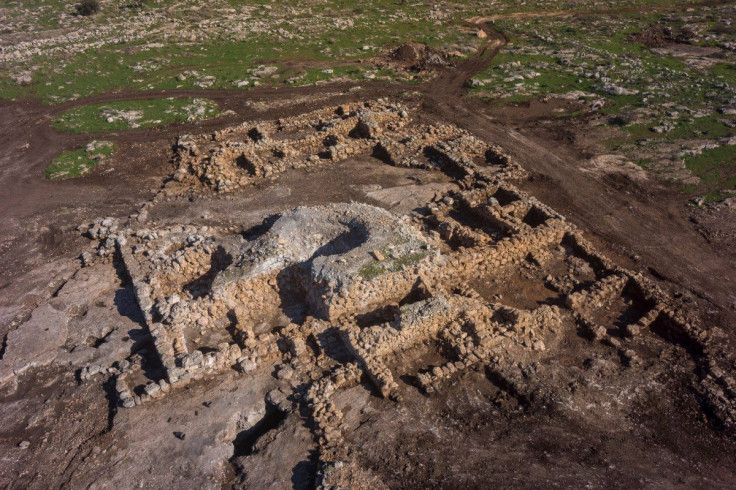Twin archaeological discoveries in Israel depict life before and after Christian era

In what has been described as an "impressive" find, archaeologists have unearthed remains of a 2,700-year-old farm house and a 1,500-year-old monastery in Israel. The twin discoveries were made at a construction site in the Israeli city of Rosh Haayin, about 63km northwest of Jerusalem.
Archaeologists at the Israel Antiquities Authority who conducted the excavation, said although built centuries apart, the presence of both the structures at the same site indicates how Christianity spread in the area.
The farmhouse, measuring 30m by 50m, appears to be an agricultural homestead with 24 rooms constructed around a central courtyard where a large silo that stored grain was also found.
In addition, simple rock-hewn oil presses used in the production of olive oil were also exposed during excavation at the farmhouse, Amit Shadman, excavation director on behalf of IAA said in a statement.
Some of the other artefacts recovered from the ruins of the farmhouse included two silver coins from 4BC. The coins bear the likenesses of Greek goddess Athena and the Athenian owl.
"This farmstead and other similar ones operated for centuries until the region was abandoned in the Hellenistic period," Shadman said. "Many hundreds of years later, during the fifth century CE, another settlement wave, this one being Christian, arrived in the area and changed the landscape."
He added: "Among other things, the rapid spread of Christianity at that time is apparent as evidenced by the many impressive rural churches and monasteries that have been exposed."
The ruins of the monastery dating to the early Byzantine period, about 1,500 years ago were excavated on one of the hills near the farmhouse and exposed a church, an oil press, residential quarters and stables equipped with mangers and troughs.
Colourful mosaics with geometric designs were also uncovered at the church floor. One of the mosaics carried a Greek inscription that translates into English as: "This place was built under Theodosius the priest. Peace be with you when you come, peace be with you when you go, Amen," he added.
© Copyright IBTimes 2024. All rights reserved.






